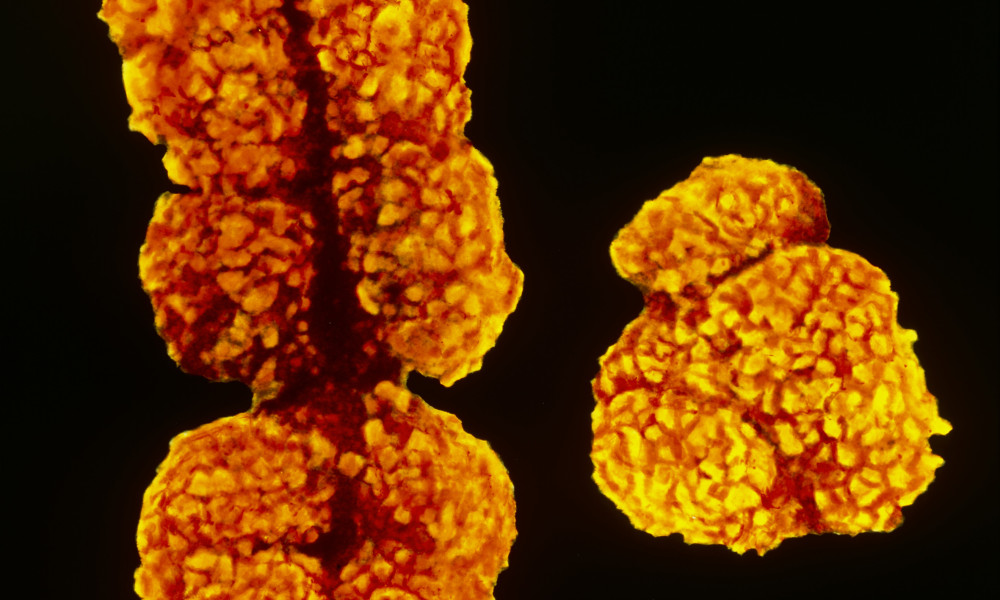Can we rely on genetic testing?
The mapping of the human genome was completed in 2000 and opened up possibilities to develop personalised medicines. This raised the question: could we analyse the connection between a person’s genetic make-up and the food that would best suit them? Would it be possible to move away from general advice to the population such as’ less salt’ to tips and advice designed to suit each individual?
For hundreds of years, we have known that certain foods are good for our health and others make us ill. Will it then become a question of class when the boundary between food and medicine is gradually erased? Is there a risk that those who can afford expensive sporting activities and designer clothes could also buy themselves a longer and healthier life by having private genetic tests?
Food4Me
Jennie Ahlgren is part of Food4Me, an EU-funded research project that is studying many aspects of personalised dietary advice: food, nutrition and genes. Together with other ethicists and lawyers, Jennie is looking at the ethical and legal dilemmas that could arise. The research project has been running for two years, and 1 200 people in Germany, Greece, the Netherlands, the UK, Spain, Ireland and Poland are participating to show how effective the advice that you pay for in a genetic test is. The results may be important for the commercialisation of genetic tests for personalised dietary and lifestyle advice.
“The commercialisation of dietary and lifestyle advice based on genetic tests has received criticism from various sources. One of the questions raised is how private individuals are to evaluate the results and advice they receive. Another question is where consumers can turn with the questions and emotions that may be prompted by the results of the genetic tests. Today, you can order a test online from the comfort of your home, send in a saliva sample and then receive information on some of your genes and how you should eat to reduce the risk of various diseases. Studies have shown that many people are interested in receiving exactly this kind of personalised advice”, says Jennie Ahlgren. “However, more in-depth analysis is still not available, because we don’t know exactly which genes talk to each other. A commercial genetic test looks at 15 genes. Humans have around 20 000.”
Risks of taking the test
In the Swedish health service, various genes, for example breast cancer genes, are tested and the patient is monitored throughout the process of information and emotion. Unlike hospitals, many of the commercial companies use extensive legal disclaimers. Other questions raised address issues of fairness and the responsibility of the individual. Who can afford to purchase these services?
“If, for example, you find out that exercising more and eating more healthily could extend your life expectancy, but don’t bother, should you still receive treatment if you become obese or develop COPD from smoking? If I have problematic genes, should I be required to inform my insurance company? Who bears medical responsibility if it is possible to buy advice and information outside the health service?” asks Jennie Ahlgren.
These are complicated questions to which there are no obvious answers. Among consumers, who are often interested in these services, ethical questions are raised. There is a concern that their genetic information could end up in the wrong hands. There are also a lot of uncertainties over what information to share with one’s family, who may have the same genetic predispositions.
“A major question I sometimes reflect on is what type of health aims are healthy. The notion of a good life is very individual and involves a complex interaction between many different factors. I am more than just my genes, and potential diseases and the food I eat are not only a source of physical health or illness. However, food can have a major impact on our health, and personalised dietary advice would probably be a great help to many. I think it’s a question of finding a balance in your relationship to food and health, otherwise it can easily become unhealthy.”
Text: Bodil Malmström
Published: 2014
Facts
-
Five genes
-
The Food4Me study tests five genes that have a connection with diet and health. Genetic tests from commercial providers may be different.
The five genes are:
MTHFR – bearers of a variant of this gene may need to increase their folic acid intake to reduce their risk of cardiovascular disease.
FTO – it may be particularly important for bearers of a variant of this gene to maintain a healthy weight and exercise to gain additional health benefits.
TCF7L2 – a variant of this gene is associated with greater weight loss when fat is reduced.
ApoE(e4) – a variant of this gene is associated with a greater need to maintain healthy cholesterol levels and reduce intake of saturated fat. This can improve cholesterol levels and reduce the risk of cardiovascular disease.
FADS1 – bearers of a variant of this gene can benefit from increased intake of omega-3 fatty acids from fish. Such an increase has been associated with a reduced risk of cardiovascular disease.
-
Lifestyle advice
-
Jennie Ahlgren also participated in the project as a research subject, submitting a blood sample which was used to check which variants of the five genes she bears. The blood sample was also analysed for levels of cholesterol, glucose, omega-3 and carotenoids. She also submitted information about her diet, measurements and lifestyle. On this basis, Jennie was given dietary and lifestyle advice, which stressed the following four areas:
– Increase your physical activity and maintain your weight
– Reduce your intake of saturated fat
– Increase your intake of carotenoids
– Reduce your salt intake




